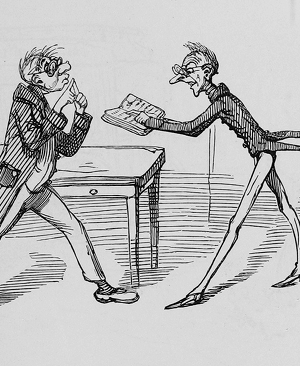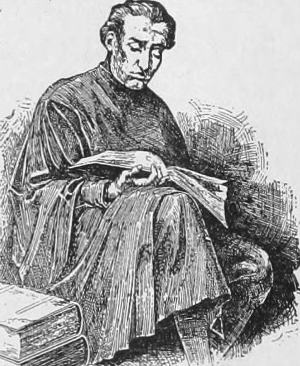Contribute to The Programming Historian
The Programming Historian runs on the far-from-endless energy of volunteers, and we want to hear from anyone who shares our interest in teaching digital methods, forging new processes of peer review, and building diversity in the digital humanities community. Below we’ve outlined common ways to contribute; please let us know any ideas you have for broadening participation.
Write a new lesson
Our English journal is currently seeking proposals for new original lessons or translations to be considered for publication in 2026. Learn more in our
our call for proposals (open until 15 February 2026). Submissions to our
Spanish,
French and
Portuguese journals are open year-round.

Writing a tutorial is one of the best ways to teach yourself particular skills and actively engage in the digital humanities community.
We don’t simply accept or reject articles like traditional journals. Our editors collaborate with you to help craft your essay to be as clear and as useful as possible–a great way to improve your technical writing skills. Please read more about our submission process.
Review a lesson
We are proud to use an Open Peer Review system. We think this provides a valuable opportunity for collaboration between authors, translators and peers in the global community. The peer review process also supports productive knowledge exchange, and helps us to shape lessons that are practical, accessible, and sustainable.
If you would like to contribute as a peer reviewer, please take a few minutes to register your interest via our Google Form which you can submit directly online. There’s also a plain-text version which you can send to us by email, if you prefer. We seek volunteers who are available to review a lesson within 12 months of registering their interest.
Edit lessons

Our editorial board members help facilitate peer review and work with authors closely to make improvements to their lessons. Our guidelines for editors is meant to ensure that everyone, from authors to reviewers to members of the wider community, receive a fair and consistent experience during peer review.
From time to time we may advertise that we are seeking more editors.
Translate a lesson

If you are fluent in more than one of our publication languages (French, English, Spanish, Portuguese), you are invited to get in touch with us about translating one of our published Programming Historian lessons from one language to another. This will help us to assist building multilingual digital humanities communities, and to build your language, method, and technological skills.
We are seeking rigorous and readable translations that take into account the Spanish-language, the French-language and the Portuguese-language research contexts and the resources available in our respective communities. If you are interested in collaborating, consult our instructions for authors and translators in Spanish, in French and in Portuguese.
Provide feedback or report problems

We welcome feedback on any aspect of the Programming Historian. Let us know what we can do to make the project better!
We are especially grateful for tips about lessons that seem to be broken. As URLs change and as new versions of software and platforms are released, lessons develop glitches over time. Please help us keep the Programming Historian up to date by letting us know about these when you come across them in the course of your reading.
Add us to your Library Catalog

This project is our attempt to demonstrate what open access academic publishing can and should be. Please help us spreading the message and providing the widest possible access to this resource by asking your librarian to include the project in your library catalogue.
The Programming Historian has listings in WorldCat (English, Spanish, French and Portuguese).
With thanks to the University of Purdue library and Amanda Visconti, and to the University of Virginia.
The English edition of the project is indexed by the Directory of Open Access Journals.
Make a suggestion
No matter how you’d like to be involved, you can always email the managing editor with any comments, questions, complaints, or suggestions. We endeavor to respond to all emails promptly.
Thanks for your help in improving the Programming Historian!